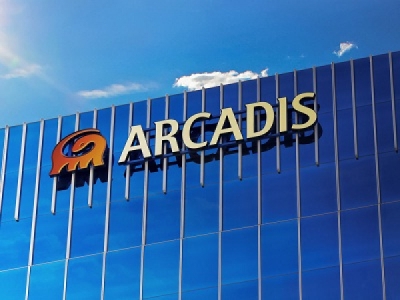
Posted on May 2, 2017
Highlands Ranch, CO, United States – ARCADIS, the leading pure play global engineering and consultancy firm, has been awarded two contracts to help restore Louisiana’s coastal wetlands. For both projects, ARCADIS US will focus on diverting valuable sediments and nutrients from the Mississippi River to start rebuilding the thousands of acres of land now being lost every year. The two projects together represent a potential capacity of 85,000 cubic feet per second (cfs) of sediment-rich Mississippi River waters to build up to 25,000 acres of wetlands over 50 years.
For the “White Ditch Freshwater and Sediment Diversion” project, the U.S. Army Corps of Engineers New Orleans District selected ARCADIS US to design a freshwater and sediment diversion system south of New Orleans. The goal of the program is to offset the trend of coastal deterioration brought on by years of human intervention on the river. Delivering valuable land-building sediments from the Mississippi River will help maintain the current area of marsh habitat and its ability to reduce vulnerability to coastal storms, waves and flooding.
The other ARCADIS US contract is for the Lower Barataria Sediment Diversion Project, part of the state of Louisiana Coastal Protection and Restoration Authority’s larger, $50 billion program of coastal restoration and protection. Intended to rebuild the barrier islands, shoreline and coastal marshes of Caminada Headland and Shell Island, the program is designed to restore both habitat and the sustainability of the shoreline itself. An integral component of the overall program, the Lower Barataria Sediment Diversion Project is expected to create between 9,000 to 12,000 acres of wetlands over a 50-year period.
Restoring coastal wetlands and natural barriers are all part of a strategy critical to the region known as “America’s Wetland.” Reconnecting the Mississippi River and its fresh water and sediments to the delta will help rebuild important ecosystems and their ability to make the coastal area more resilient to storms.
“The coastal wetlands are more than a land mass. They are integral to the economy and culture of the region,” notes Rudy Guichard, senior vice president/director of ARCADIS US “Not only do they act as part of the multiple layers of defense against storms and flooding, these areas provide the habitat for fish and wildlife that are part of Louisiana’s economic lifeblood.
“As a global leader for designing sustainable coastlines and waterways, ARCADIS believes in developing multi-faceted, integrated solutions to restore, protect, and enhance sensitive coastal areas. We are working with the Army Corps and the state of Louisiana to design these projects with and from nature, in effect using nature as a dynamic engine. These projects will harness the massive power of the Mississippi River to bring sediment and nutrients to the basin. You couldn’t afford to dredge the same amount in the same time.”
Anyone who has lived in the region knows that this work can’t happen fast enough. According to the U.S. Geological Survey, analyses point to the Louisiana wetlands disappearing at a rate of more than a football field an hour. These diversion projects are an important part of the overall effort to both maintain existing wetlands and prevent future losses of valuable acreage.
Source: ARCADIS





